Resource Center
The Transit Workforce Center is pleased to host a curated collection of publications and other materials to assist stakeholders engaged in transit workforce development. The Resource Center includes case studies, training materials, research reports, and other materials of interest, including publications produced by federal government agencies, transit organizations, and independent research entities. Resources may be filtered by topic, resource type, and transit mode. This TWC blog post explains how to use the Resource Center.
We are continuing to update the Resource Center regularly. Please contact us via the Request Help menu option if you would like assistance using the Resource Center or are looking for resources on a particular topic. We also welcome suggestions of topics or specific resources to add.
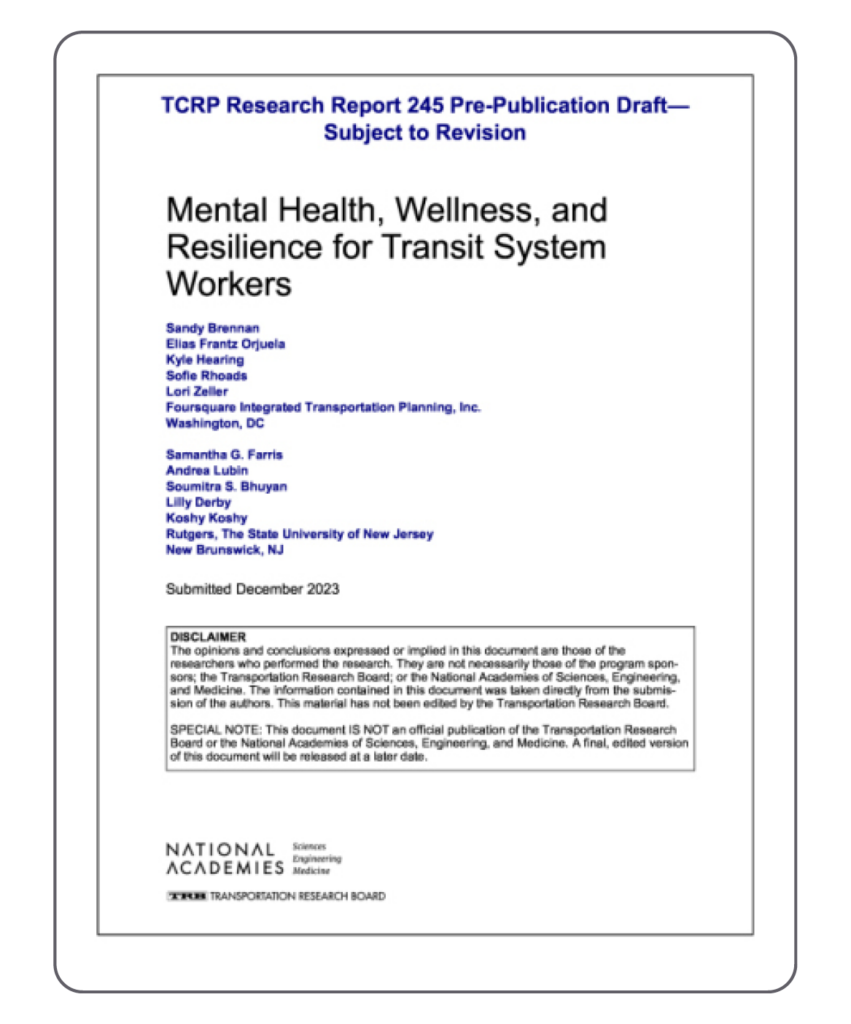
Mental Health, Wellness, and Resilience for Transit System Workers
TCRP Research Report 245: Mental Health, Wellness, and Resilience for Transit System Workers, a pre-publication from TRB’s Transit Cooperative Research Program, provides a detailed summary of common factors that influence the mental health, well-being, and resiliency of frontline transit workers and includes a range of solutions that transit agencies can implement to address them. Findings were determined using a mix of research methods, including multiple interviews and focus groups with frontline employees, transit agency management, and union leadership at two different points in the project.
Transit Cooperative Research Program
February 2024
TOPICS: Policy and Planning, Safety and Health
Contributor(s): Sandy Brennan, Elias Frantz Orjuela, Kyle Hearing, Sofie Rhoads, Lori Zeller, Samantha G. Farris, Andrea Lubin, Soumitra S. Bhuyan, Lilly Derby, Koshy Koshy; Transit Cooperative Research Program; Transportation Research Board; National Academies of Sciences, Engineering, and Medicine
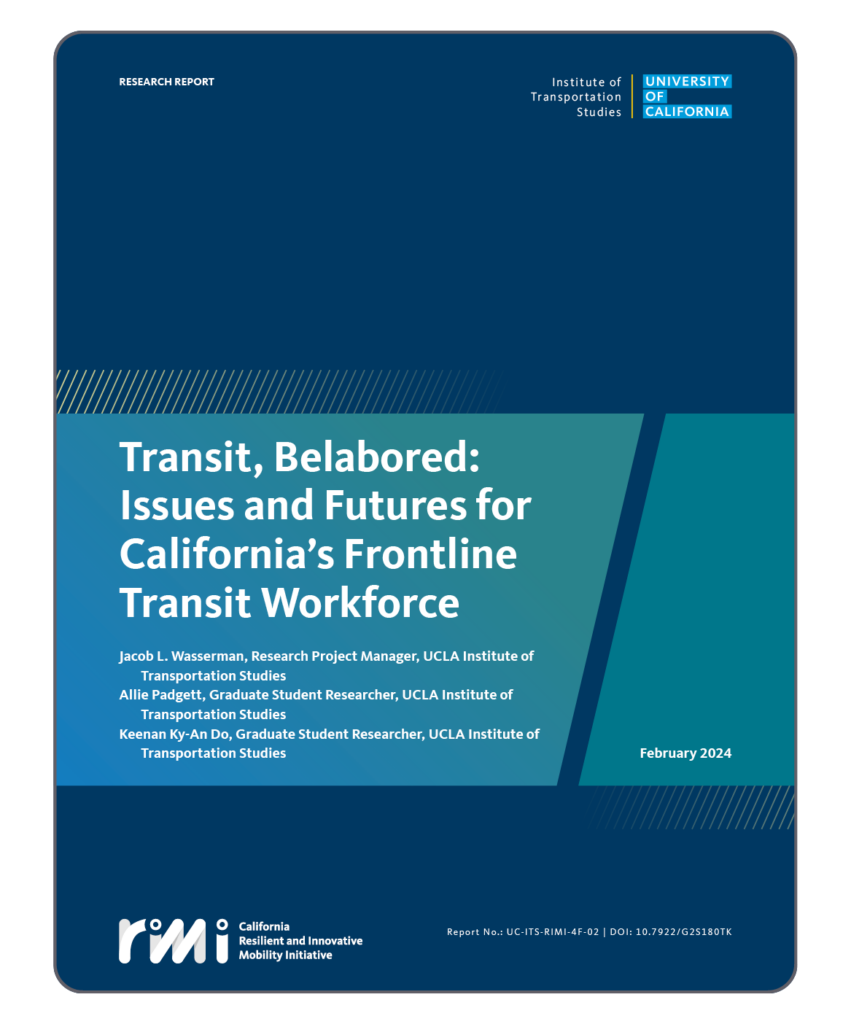
Transit, Belabored: Issues and Futures for California’s Frontline Transit Workforce
This report focuses on frontline transit workforce issues, including employee pay, issues before and after the COVID-19 pandemic, and the workforce shortage. The report is mainly about transit operators, but also touches on mechanics. It draws on quantitative and qualitative data, including wage data by agency and sector, contracts and agency documents, and interviews with union leaders, agency managers, and operators themselves.
Institute of Transportation Studies
February 2024
LEARN MORE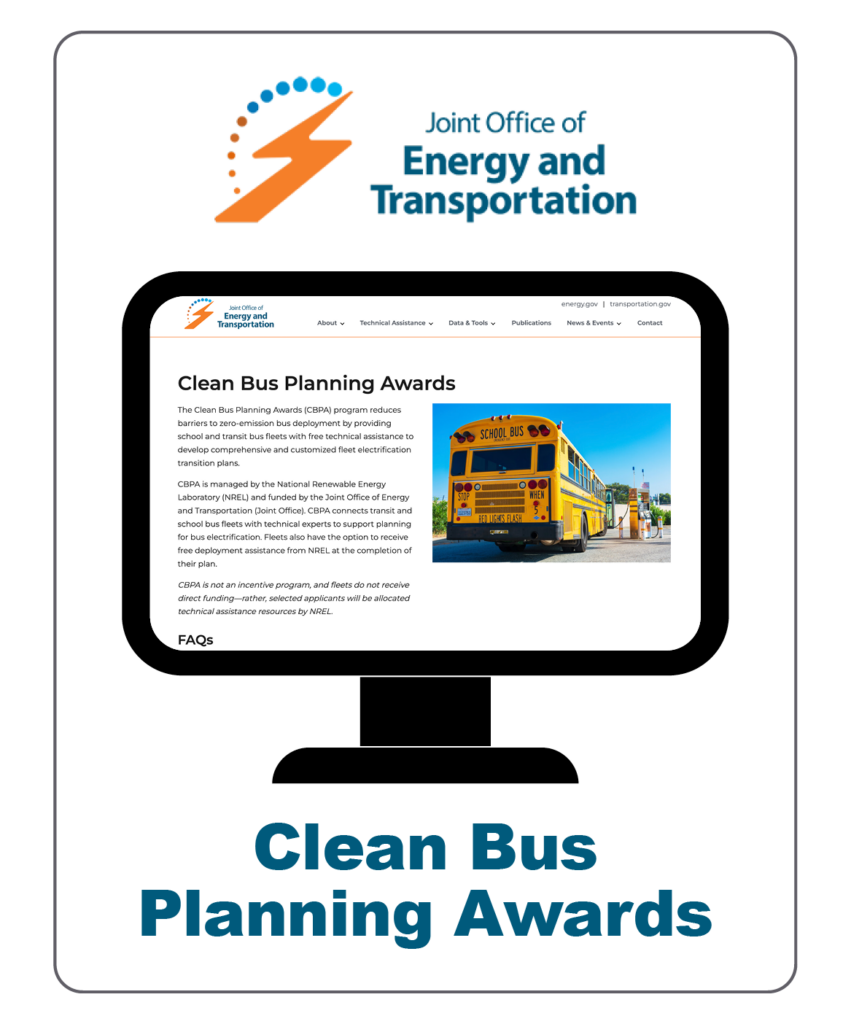
Clean Bus Planning Awards
The Clean Bus Planning Awards (CBPA) program reduces barriers to zero-emission bus deployment by providing school and transit bus fleets with free technical assistance to develop comprehensive and customized fleet electrification transition plans. Applications may be submitted on a rolling basis.
Joint Office of Energy and Transportation, National Renewable Energy Laboratory
February 2024
TOPICS: Policy and Planning, Zero Emission Buses
CBPA is not an incentive program, and fleets do not receive direct funding—rather, selected applicants will be allocated technical assistance resources by NREL.
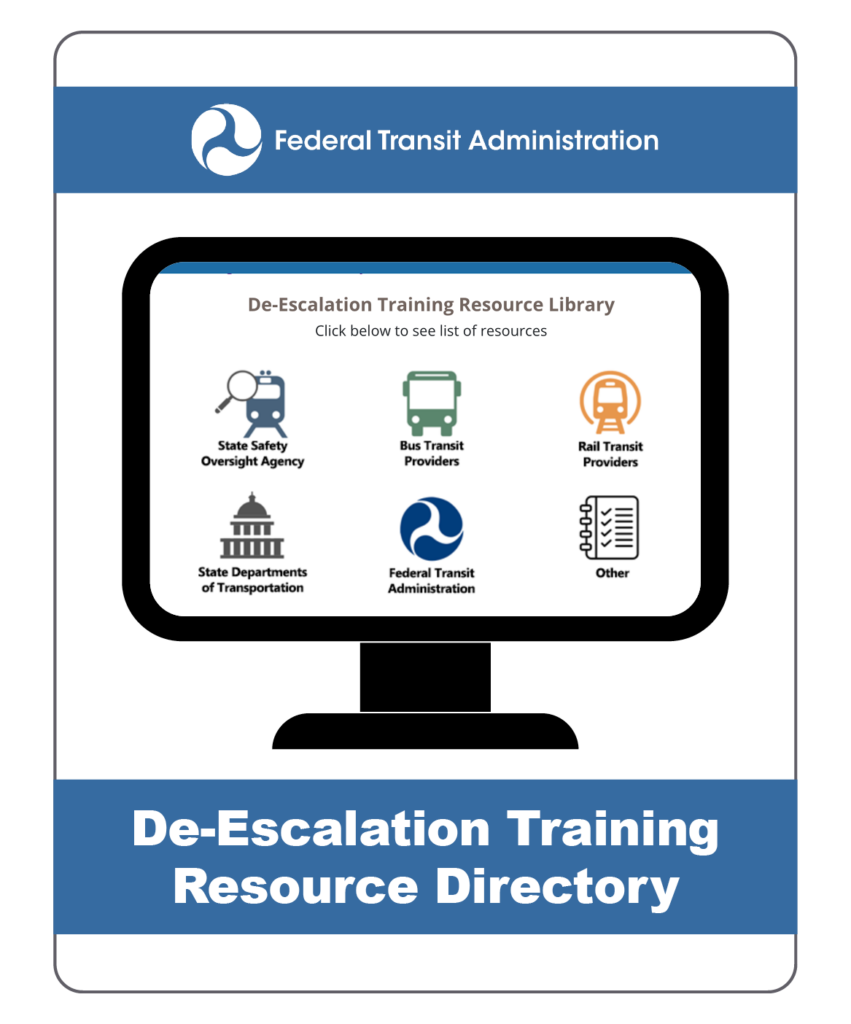
De-Escalation Training Resource Directory
The Federal Transit Administration (FTA) has gathered these resources to support the transit industry in developing, implementing, and updating their training programs. The resources illustrate ways agencies throughout the transit industry are implementing de-escalation training.
Federal Transit Administration
February 2024
TOPICS: Policy and Planning, Safety and Health, Training
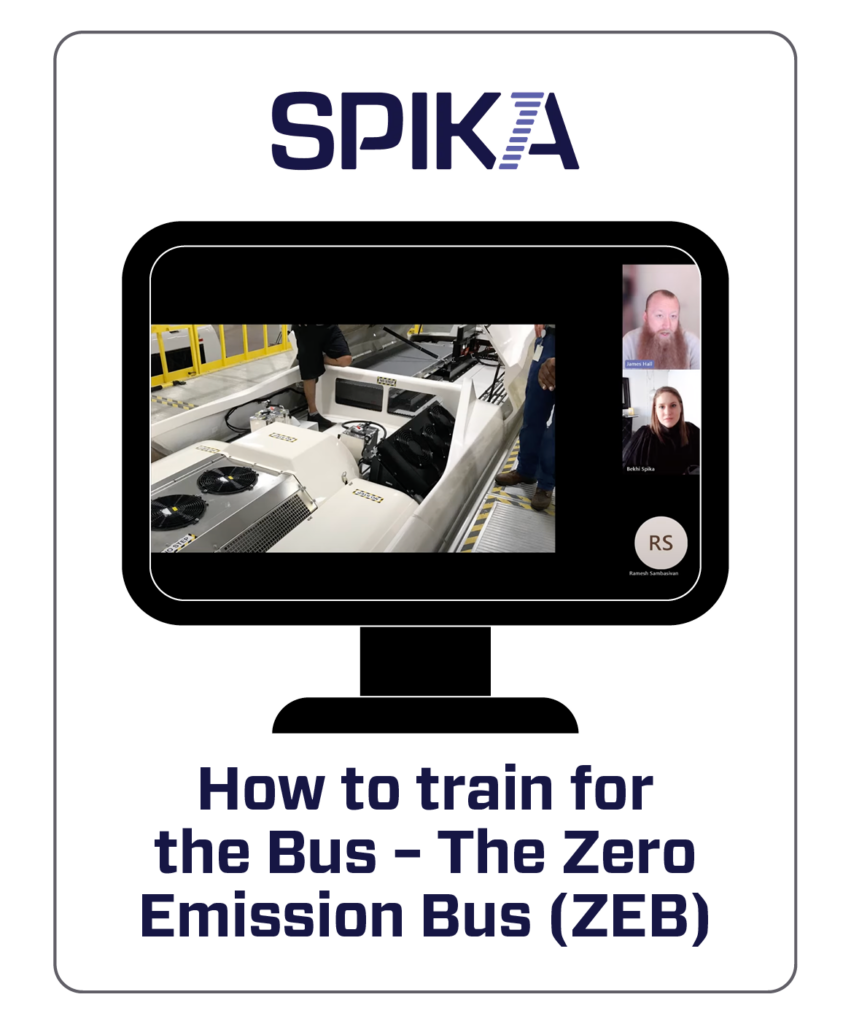
How to train for the Bus – The Zero Emission Bus (ZEB)
In this video, James Hall, Principal & Founder of ZEB Tech, and Bekhi Spika, Vice President & Chief Revenue Officer of Spika Design & Manufacturing, have a conversation about transitioning and training the transit workforce for zero-emission buses.
Spika Design & Manufacturing
February 2024
TOPICS: Training, Zero Emission Buses
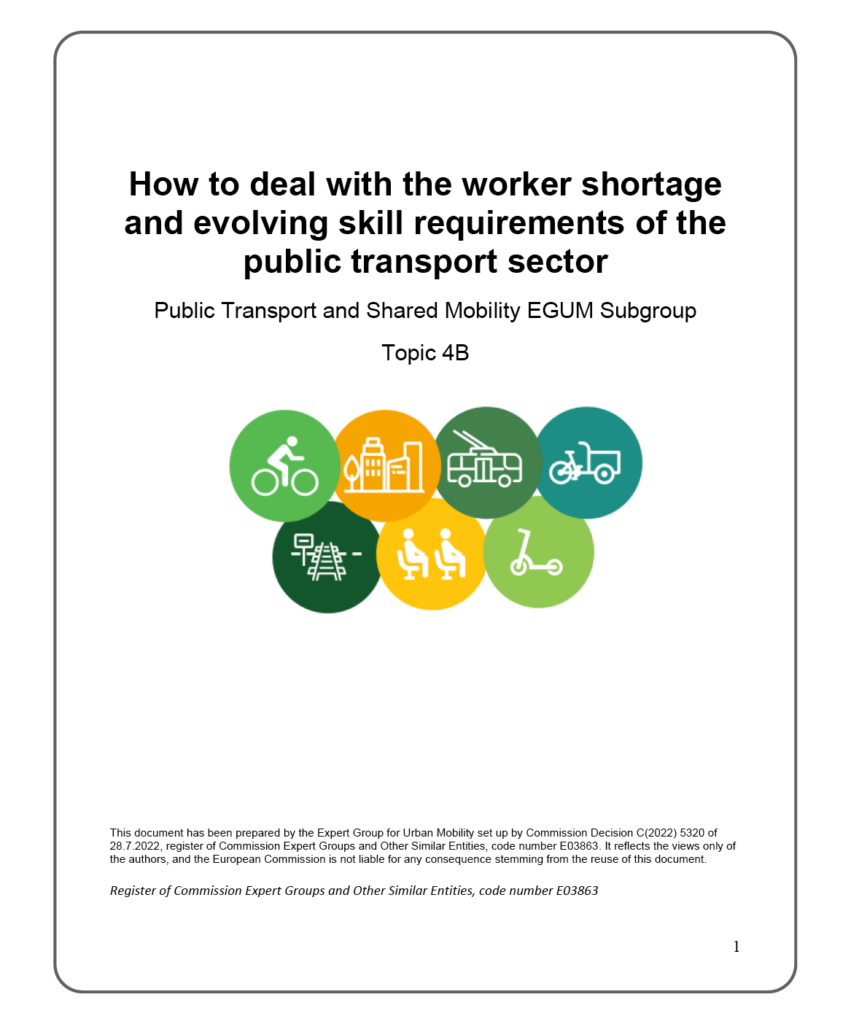
How to Deal with the Worker Shortage and Evolving Skill Requirements of the Public Transport Sector
This report provides a European counterpart to those produced within the United States on the transit workforce shortage. It gives an overview of the workforce shortage’s causes, as well as recommendations for addressing evolving skill requirements, diversifying the workforce, and more.
Expert Group on Urban Mobility, European Commission
February 2024
TOPICS: Diversity, Equity, Inclusion, and Access, Hiring and Recruitment, Training, Workforce Shortage
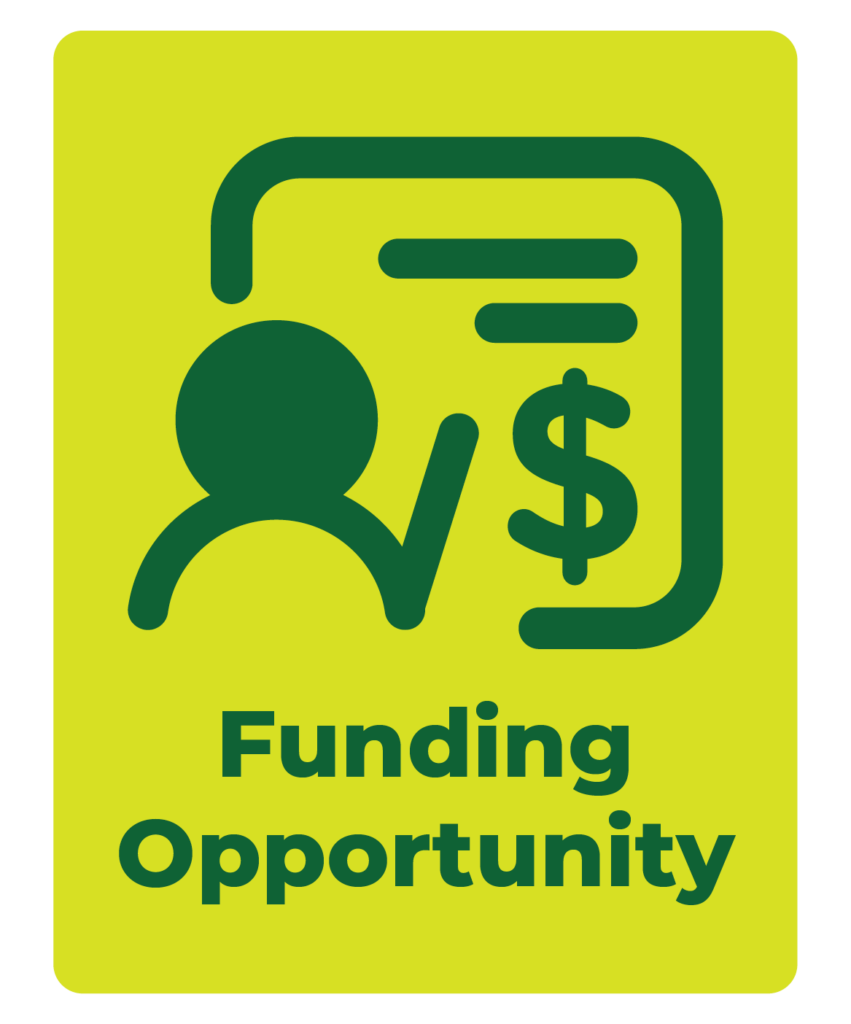
Low or No Emission and Grants for Buses and Bus Facilities Competitive Programs FY2024
Administering Agency: Federal Transit Administration
Posted Date: Feb 8, 2024
Closing Date for Applications:
Total Program Funding: $1,103,963,762
Geographic Scope: National
TOPICS: Funding Opportunities, Training, Zero Emission Buses
Description: The purpose of the Low-No Program is to support the transition of the nation’s transit fleet to the lowest polluting and most energy efficient transit vehicles. The Low-No Program provides funding to state and local governmental authorities for the purchase or lease of zero-emission and low-emission transit buses, including acquisition, construction, and leasing of required supporting facilities.
The purpose of the Buses and Bus Facilities Competitive Program is to assist in the financing of buses and bus facilities capital projects, including replacing, rehabilitating, purchasing or leasing buses or related equipment, and rehabilitating, purchasing, constructing or leasing bus-related facilities.
Additionally, recipients are permitted to use up to 0.5 percent of their requested grant award for workforce development activities eligible under federal public transportation law (49 U.S.C. 5314(b)) and an additional 0.5 percent for costs associated with training at the National Transit Institute. For applicants proposing projects related to zero-emission vehicles for either program, 5 percent of the requested federal award must be used for workforce development activities.
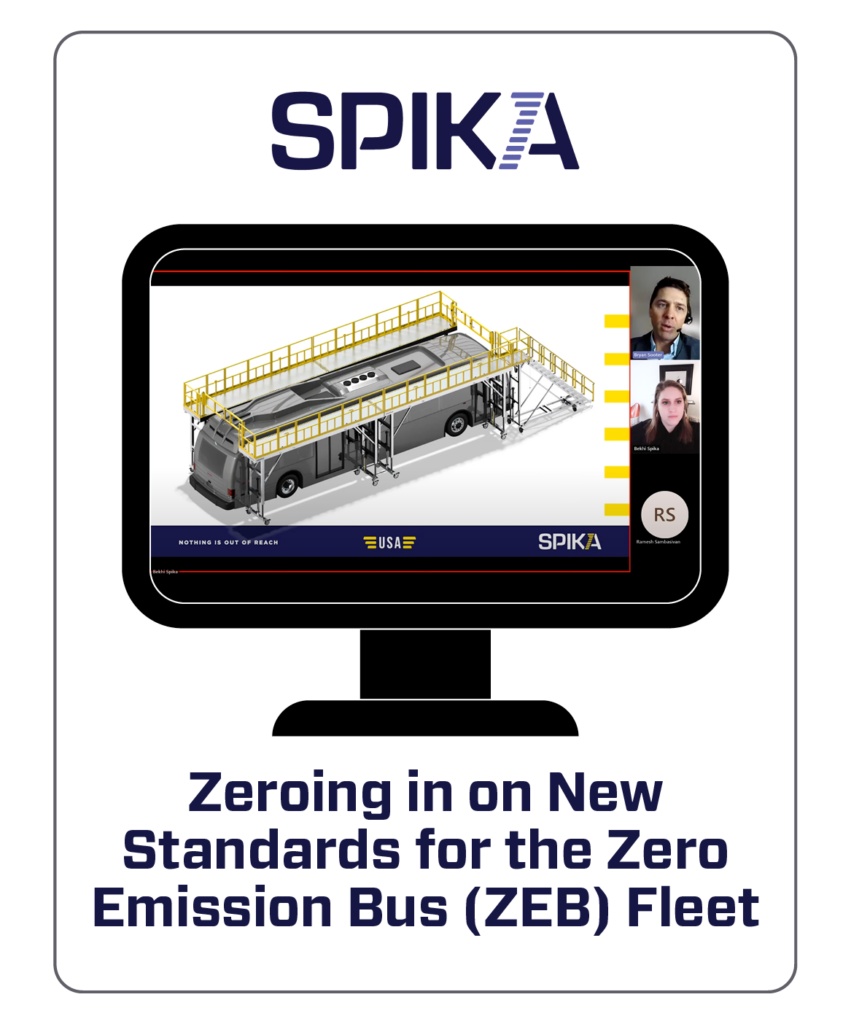
Zeroing in on New Standards for the Zero Emission Bus (ZEB) Fleet
In this video, Bryan Sooter, P.E., Director of Standards at the American Public Transportation Association (APTA), and Bekhi Spika, VP and CRO of Spika Design & Manufacturing, have a conversation about ZEB standards, including how standards are created in public transportation; the challenges faced by transit agencies in getting prepared for an entirely new way of operating with entirely new technology in existing, new or modified infrastructure; the kinds of areas that new standards on ZEB can be expected to encompass; and the guidance on resources available from APTA for transit agencies shifting to ZEB fleets.
Spika Design & Manufacturing
February 2024
TOPICS: Policy and Planning, Training, Zero Emission Buses






